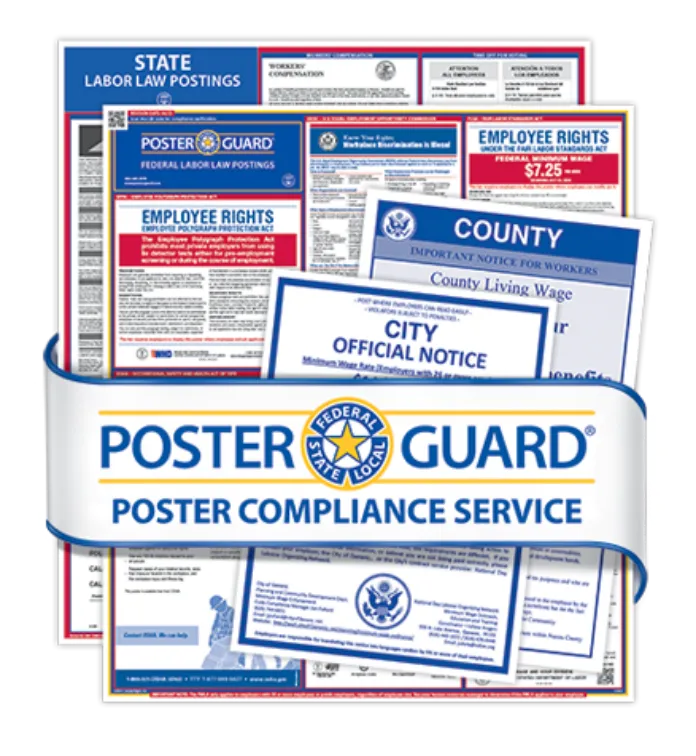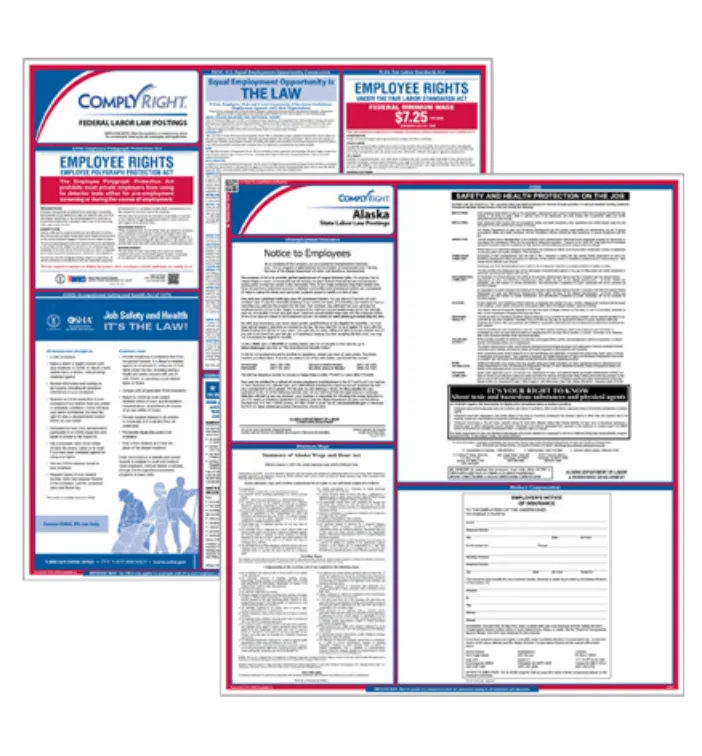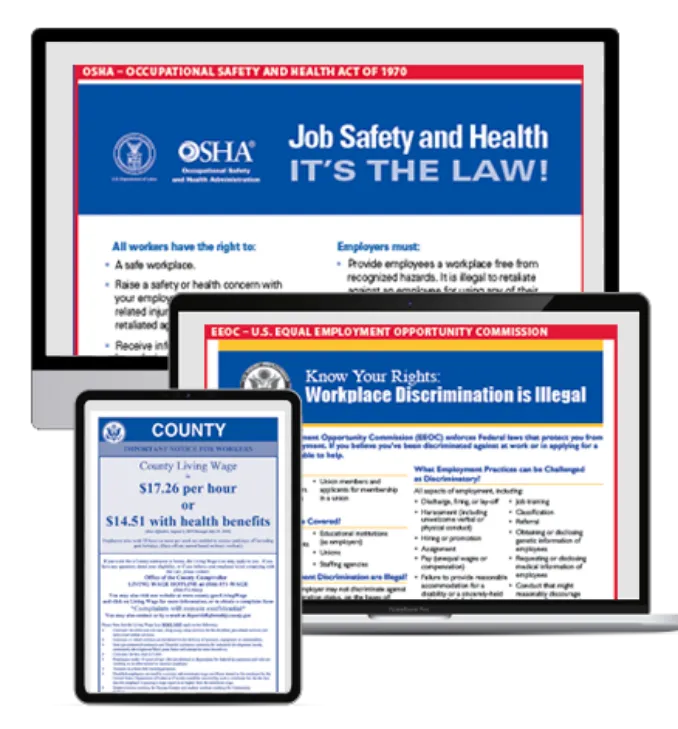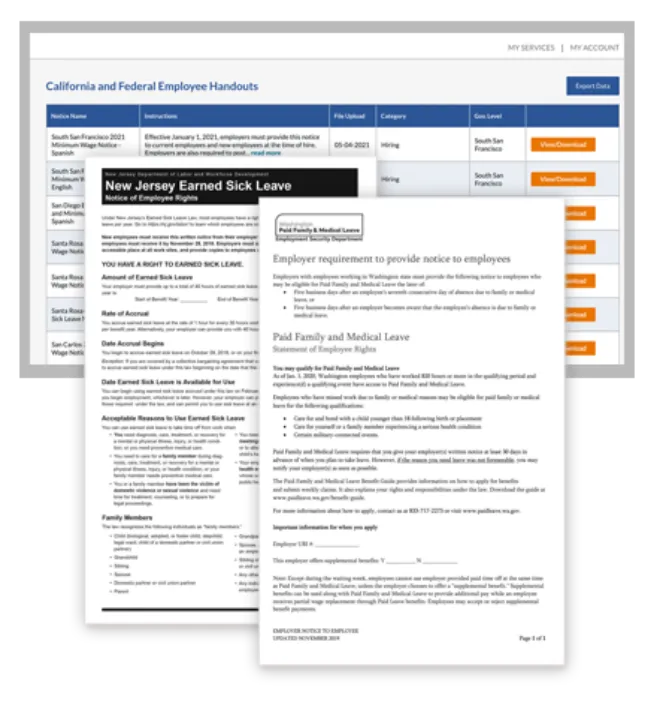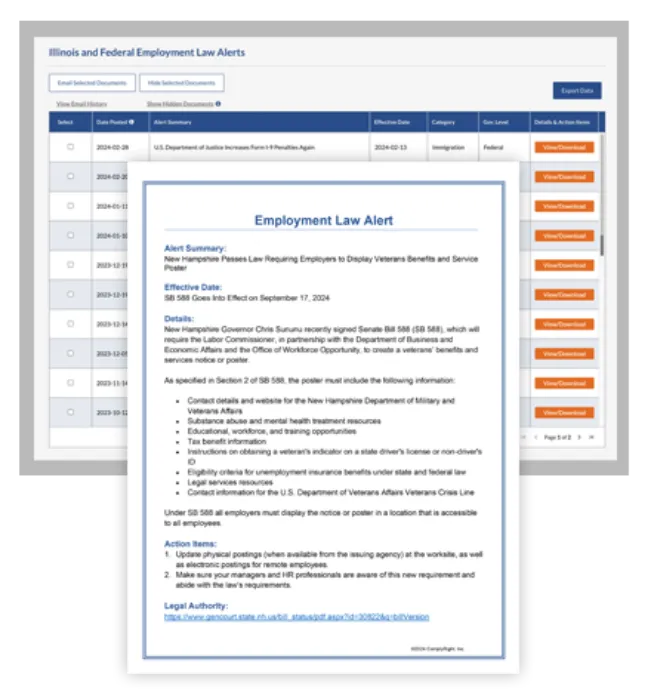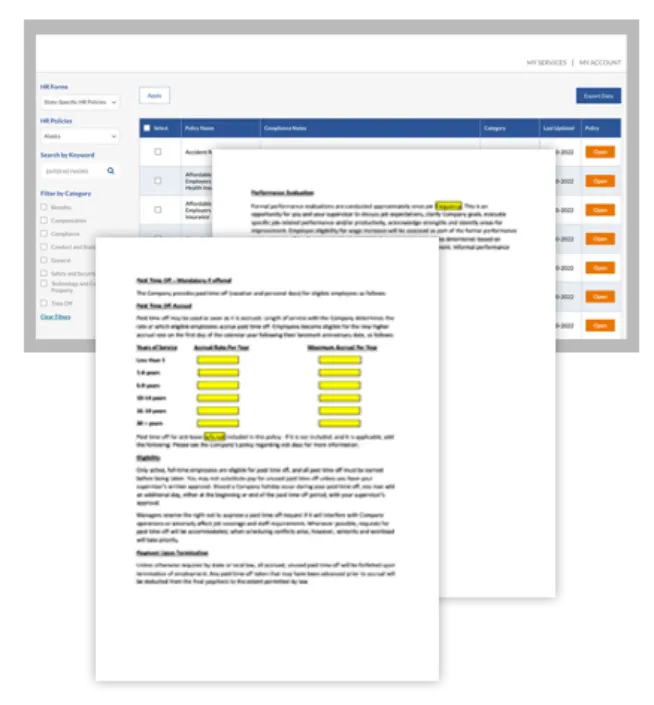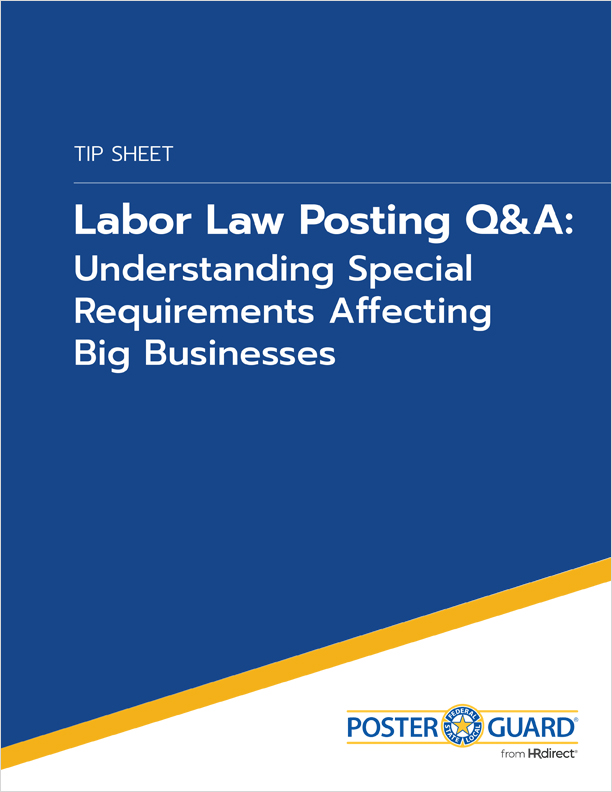The federal minimum wage has stayed at $7.25/hour since 2009 – the longest period in history without an increase. Will this change in the coming year? Perhaps … but only if Congress acts on legislative initiatives targeting this “stagnant” rate.
In the meantime, minimum wages are expected to rise in many states, counties and cities due to inflation, which impacts businesses of all sizes. Specifically, these rate increases can affect your payroll practices and posting obligations. Learn how to keep current with rising state and local minimum wage rates so you’re fully compliant no matter what the circumstances.
Minimum Wage Rates Continue to Climb in States and Cities
When it comes to minimum wages, it’s important to understand that states have authority to pass laws that are more generous than federal law and, similarly, municipalities can enact laws that surpass state laws. That’s why minimum wages are higher than the federal wage in many states, counties and cities. And when this occurs, affected employers are legally obligated to pay the most beneficial rate to employees.
Minimum wage rates are expected to surge in certain states and cities in 2023 due to inflation or previously scheduled increases.
In 2022, 26 states and 60+ cities have raised their minimum wage, with rates taking effect at various times of the year. The same degree of change is expected in 2023, but with even higher increases for states and cities that tie their minimum wage to inflation. Further still, new legislation in 2023 may also impact these inflation-based increases – a situation our legal experts will watch closely. (For example, Denver will raise the city’s minimum wage to $17.29/hour effective January 1, 2023 – an 8.9% increase, or more than triple a typical inflation-based increase.)
2023 Affected States:
| Alaska | TBA |
| Arizona | $13.85 |
| California | $15.50 |
| Colorado | $13.65 |
| Connecticut | $15.00 (effective 6/1/23) |
| Delaware | $11.75 |
| Florida | $12.00 (effective 9/1/23) |
| Illinois | $13.00 |
| Maine | TBA |
| Maryland (15 or more employees) | $13.25 |
| Massachusetts | $15.00 |
| Michigan | $10.10 |
| Minnestoa (annual gross revenue of $500,000+) | $10.59 |
| Missouri | $12.00 |
| Montana | TBA |
| Nevada | $11.25 (effective 7/1/23) |
| New Jersey (six or more employees) | $14.13 |
| New Mexico | $12.00 |
| Ohio (gross revenue $371,000+) | $10.10 |
| Oregon | TBA (effective 7/1/23) |
| Rhode Island | $13.00 |
| South Dakota | $10.80 |
| Vermont | TBA |
| Virginia | $12.00 |
| Washington | $15.74 |
Some 2023 Affected Cities:
| Flagstaff, Arizona | $16.80 |
| Belmont, California | $16.75 |
| Burlingame, California | $16.47 |
| El Cerrito, California | $17.35 |
| Hayward, California (large employers) | $16.34 |
| Palo Alto, California | $12.75 |
| San Carlos, California | $16.32 |
| Denver, Colorado | $17.29 |
| Howard County, Maryland (large employers) | $15.00 |
| St. Paul, Minnesota (10,001 or more employees) | $15.19 |
These inflation-based increases will impact your business in a few different ways, most notably payroll and postings:
Payroll – When federal, state and local minimum wage laws differ, you’re legally required under the Fair Labor Standards Act (FLSA) to pay the most generous rate to your hourly, nonexempt workers. Along with paying the highest possible minimum wage, you must provide overtime pay of time-and-a-half for 40+ hours in a workweek. It’s advisable to complete a Payroll/Status Change Notice to document any wage changes with affected employees — and carefully track their hours to protect your business from any disputes.
You may also need to distribute state-specific employee handouts covering wage theft, which is when employers don’t pay their staff what they’re rightfully owed, whether through minimum wage and overtime violations or by expecting employees to work “off the clock” or taking illegal deductions. A handful of states — including California and Minnesota — have passed laws requiring specific notifications.
Postings – If you operate a business in most of the states and cities listed above, you’re at risk of non-compliance if your workplace labor law postings don’t reflect the latest minimum wage increases. Something else to consider: Although 30 states and Washington, D.C. now have higher rates than the current federal rate of $7.25/hour, businesses in these locations must post the federal FLSA poster and all applicable state and local postings.
To ensure complete compliance, follow these pointers:
- Display all postings in every business location — even when federal, state or local minimum wages conflict.
- Check out the Minimum Wage Monitor™ Premium Service for a precise, real-time view of state and local minimum wage rates across the United States, the District of Columbia and Puerto Rico. This interactive tool allows you to verify the latest minimum wages, as well as those scheduled to take effect so you can plan for any changes.
- Rely on our dedicated service, Poster Guard® Compliance Protection, for 365 days of guaranteed, hassle-free labor law posting compliance. You’ll receive an up-to-date federal, state and local poster set, along with automatic poster replacements every time a mandatory change (such as minimum wage) occurs.

